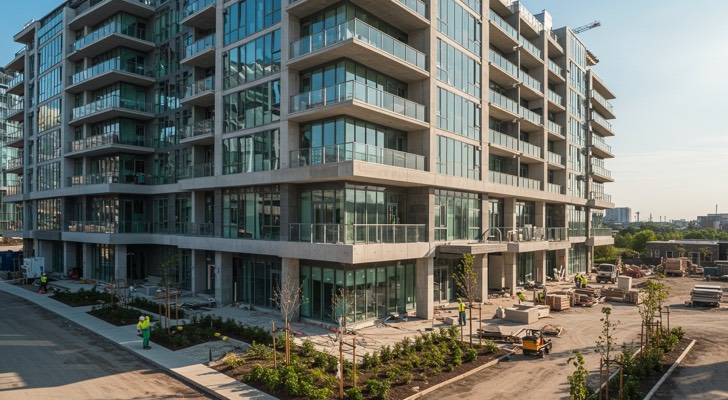
A new wave of condominium developments is set to become available across the United States after 2026, attracting growing interest from a wide range of buyers. These upcoming projects appeal particularly to those seeking a modern, low-maintenance lifestyle. Whether you are a first-time buyer, downsizing, or looking for an investment, it is worth understanding the benefits, potential drawbacks, and financial considerations of condo ownership.
What’s on the Horizon
Cities like Austin, Miami, Nashville, and Phoenix are leading the charge with new condo developments scheduled to open after 2026. These buildings are expected to feature energy-efficient appliances and materials, smart home integrations, and appealing shared spaces such as rooftop terraces, fitness centers, and co-working areas. Enhanced security and prime locations near transit, shops, and dining further add to their appeal. For many, the opportunity to move into a fresh, move-in-ready unit with minimal upkeep is a major draw.
Pros and Cons of Condo Living
Condo ownership offers several lifestyle benefits, particularly when it comes to convenience. Homeowners are not responsible for exterior maintenance, landscaping, or structural repairs, which are managed by the homeowners association (HOA). Many new buildings provide amenities such as gyms, pools, and lounges that are included in monthly dues. Modern security systems, including keycard entry and surveillance, enhance residents’ peace of mind. Condos are often located in walkable neighborhoods filled with dining, shopping, and entertainment, and they can be a strong investment option in fast-growing cities due to steady rental demand.
However, there are trade-offs. Monthly HOA fees can be steep and must be paid regardless of whether you use the amenities. Privacy can be limited since you share walls, hallways, and elevators with neighbors. Most condo communities enforce rules regarding pets, noise, short-term rentals, and even certain aspects of interior decor. Outdoor space is usually minimal, often limited to a balcony. Additionally, condos may not appreciate in value as quickly as single-family homes, and selling can take longer if many similar units are available.
What It Costs to Live in a Condo
While purchase prices are often lower than single-family homes in the same neighborhood, monthly costs can add up. These typically include your mortgage, HOA dues (about $200 to $800 per month), and utilities such as electricity and internet. In some cases, certain utilities are included in HOA fees. Condo insurance is usually cheaper than homeowners insurance but still necessary. Property taxes are based on the unit’s assessed value and your local tax rate.
Here is a look at estimated monthly costs for a modern two-bedroom condo in major U.S. cities (including mortgage, HOA fees, utilities, and taxes):
- New York City: $5,500–$7,500, with premium HOA fees often over $1,500
- San Francisco: $5,000–$7,000
- Los Angeles: $4,000–$6,000
- Miami: $3,000–$4,800
- Chicago: $2,400–$3,600
- Austin: $2,800–$4,000
- Phoenix: $2,200–$3,500
- Charlotte: $2,000–$3,200
- Seattle: $3,500–$5,000
- Denver: $2,800–$4,200
- Atlanta: $2,200–$3,400
- Boston: $4,500–$6,500
- Washington, D.C.: $4,000–$6,000
- Philadelphia: $2,800–$4,200
Actual costs depend on building age, unit size, location, and included services. Always calculate your total monthly outlay before buying.
How to Find a Brand-New Condo
Finding the right new condo takes planning. Start by researching upcoming developments in your preferred city, paying attention to projected completion dates, floor plans, and available amenities. Visit model units or attend open houses to get a feel for the space and finishes. Work with a real estate agent who specializes in new construction, as they can provide insights into pricing, builder reputations, and potential incentives. Review the HOA documents carefully to understand fees, rules, and what is covered. Finally, consider the long-term investment potential by evaluating the neighborhood’s growth trends and resale demand.
Final Thoughts
As a new generation of condos enters the market after 2026, buyers will have more opportunities to enjoy modern, low-maintenance living in vibrant urban areas. While condos may not be ideal for those who want large outdoor spaces or complete privacy, they are an excellent choice for people who value convenience, amenities, and location. By weighing the pros and cons and researching thoroughly, you can find a property that fits both your lifestyle and long-term financial goals.


